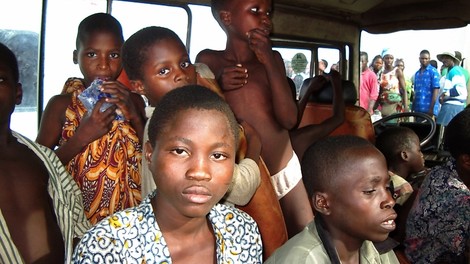Your podcast discovery platform
Curious minds select the most fascinating podcasts from around the world. Discover hand-piqd audio recommendations on your favorite topics.

piqer for: Boom and bust Global finds Globalization and politics
I am an anthropologist and political analyst interested in politics, economy and society in Africa and the West, from a global geopolitical perspective. I am a research fellow in the Department of Social Anthropology, University of Oslo, and a visiting researcher in the Centre for African Studies, University of Cape Town.
I have published widely in academic and professional publications and write regularly for international media such as Al Jazeera English, The Independent, Boston Review, openDemocracy and Africa Is A Country. I edit the Human Economy Blog.
Media Accounts About Human Trafficking And Saving Children Often Do More Harm Than Good
We are used to media accounts that regularly alert us to the "modern-day slavery" of children allegedly sold for money, and abducted from "culturally backward" societies in the global South, to be trafficked to Western countries.
In an Al Jazeera opinion piece, Neil Howard takes issue with these narratives. His field research shows that the children in question rarely see themselves as slaves, nor are they victims of local customs. Rather, they are looking for money outside their home societies, to get by in a highly unequal capitalist world.
Media reports that depict these migrants as trafficked slaves divert the attention from the real issues:
[T]his kind of work [...] deploys a gaze which is almost pornographic. In this respect, it disempowers the people it looks at and de-politicises the conditions in which they live. By constructing children as victims, it legitimises policies or raid-and-rescue missions that often make life worse for "rescued" kids. And by individualising suffering and exploitation, it detracts from the global structures that make these things possible.According to a senior UN staff, this is what sells when NGOs look for funds: "You have to be sexy to raise money, and trafficking or slavery is sexy".
Howard provides an example of the negative effects of this politics of "saving". In the 1990s, American Senator Tom Harkin successfully introduced a US Senate bill that banned textile imports from Bangladesh unless companies could show they used no child labour. He was driven by the horror he felt when seeing the exploitative working conditions of these children. Shortly after, thousands were laid off, ending up in the streets, sex work, or factories under the radar with even worse conditions.
Howard's piece is a cautionary tale about the challenges international NGOs face in trying to do good. The real causes of inequality are often hidden from sight. Some narratives make us feel better, but they cause more suffering to those we intend to help.
